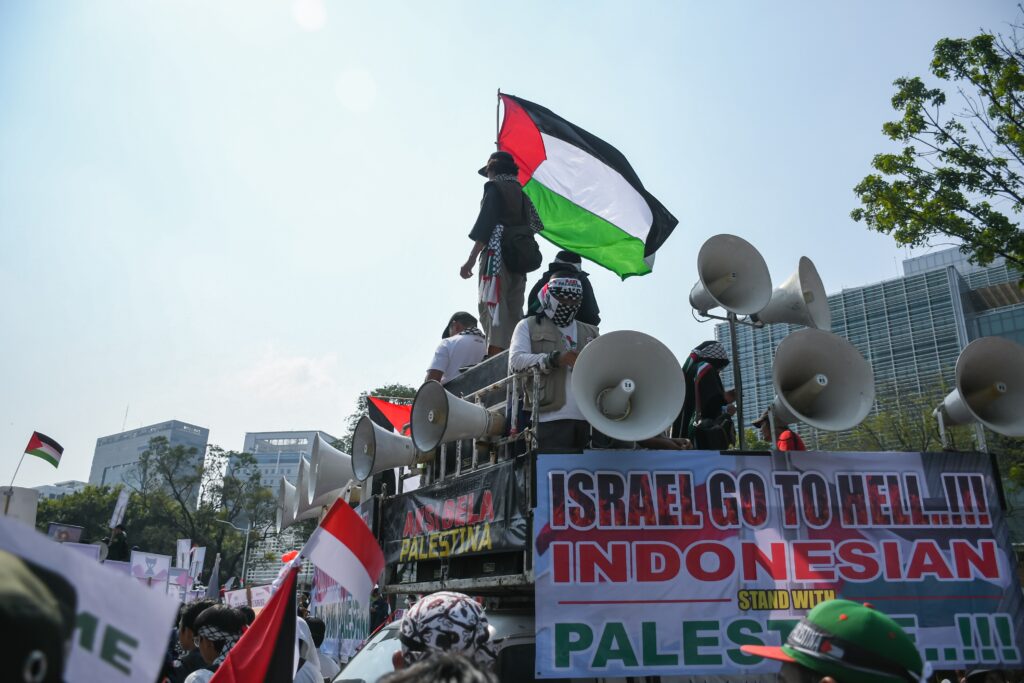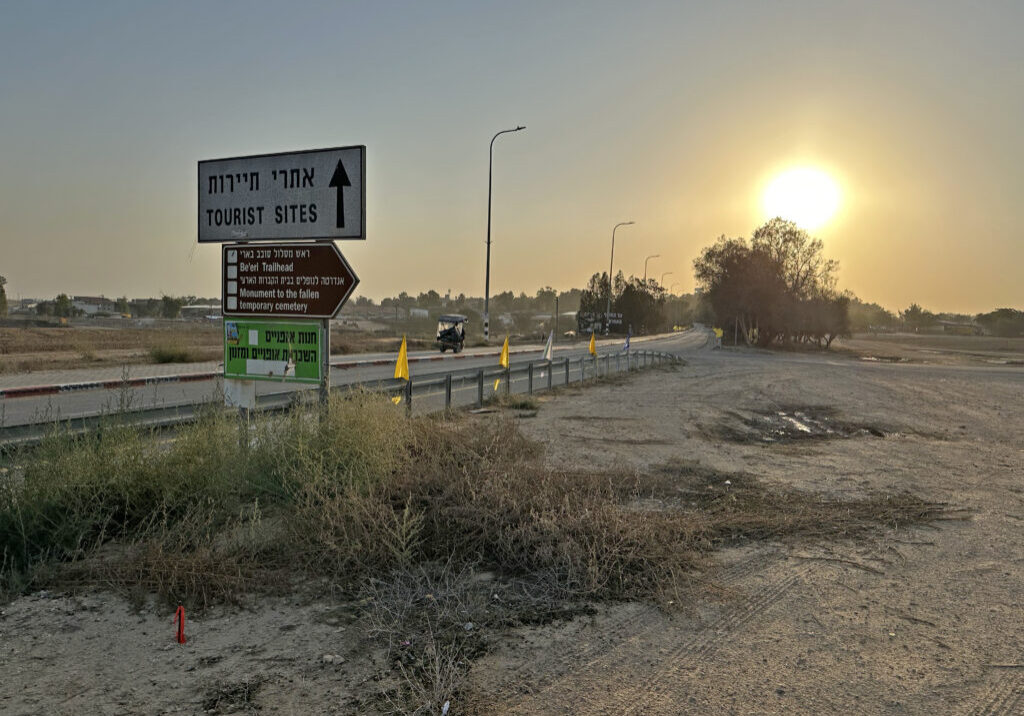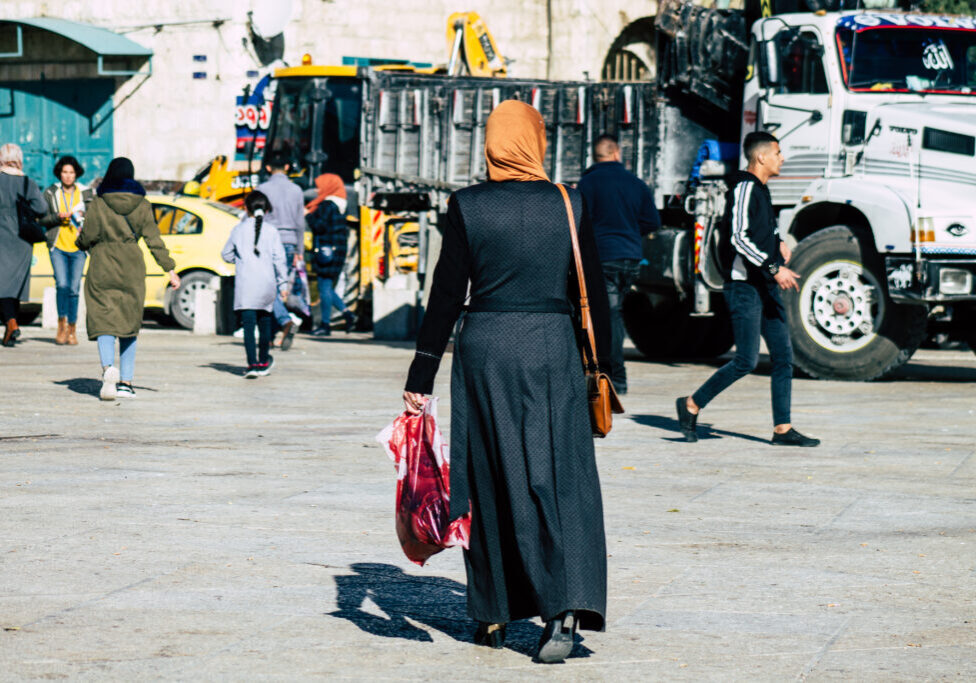Australia/Israel Review
Asia Watch: Downward trend
Sep 19, 2025 | Michael Shannon

Indonesian attitudes towards Israel have, like much of the globe, taken a significant dive since October 2023. At the political level, President Prabowo Subianto’s Government appears to be trying to balance diplomacy and relief operations with a population that remains uncompromisingly pro-Palestinian.
A poll conducted in June by MEDIAN, a Jakarta-based survey and research company, revealed a ten-point drop in public Indonesian support for the notion that both Israel and Palestine have the right to a state, with 30.2 per cent endorsing a two-state solution compared to 40.5 per cent in a similar survey in February.
Likewise, the percentage of Indonesians believing that only Palestinians are entitled to a state rose in June to 67.3 per cent as opposed to 56.9 per cent in February, while a remarkable 74.9 per cent of those surveyed agreed with the proposition that Indonesia should never establish diplomatic relations with Israel or recognise the Jewish state.
To explain the hardening of attitudes over just a few months, respondents pointed to the resumption of heavy conflict in Gaza after the ceasefire this January and February. Crucially, the survey also took place during the period of US-Israeli attacks upon Iran, hence the public mood likely reduced the percentage willing to support a pragmatic peace.
The Government responded by marking Independence Day (August 17) not only with parades and speeches at home, but also with two Indonesian Air Force C-130J aircraft flying over Gaza and releasing food and medical aid at ten drop points. “This is Indonesia’s Independence Day,” one Government communiqué declared, “and we celebrate it by standing with the oppressed.” The imagery of parachutes floating down over Gaza was widely broadcast in Indonesian media. Around a dozen other countries have done similar aid drops.
Barely a week later, the Government confirmed plans, first signalled by Prabowo in April, to treat roughly 2,000 wounded Gazan Palestinians in Indonesian facilities on Galang Island and several military medical centres. The messaging emphasised coordination with the UN and Palestinian authorities, but especially that the program was for a limited period. “Treatment will be temporary,” officials explained, “with all patients guaranteed the right of return to Gaza” – a nod to concerns voiced by Indonesian activists that evacuation could become permanent exile.
This insistence came in response to damaging reports in mid-August that an Israeli official had told CNN that Israel was in discussion with several countries, including Indonesia, about taking in Gazans displaced by the conflict. This struck at one of Indonesia’s most taboo subjects: collusion with Israel behind closed doors. The rebuttal was swift – Foreign Minister Sugiono stated flatly: “There are no talks with Israel… We never negotiated with them.” To make the point clearer, he repeated variations of the same denial over several days.
Sensitivity on these issues can be explained by the continued, widespread pro-Palestinian/anti-Israel protests by civil society groups, NGOs, and grassroots networks across Jakarta and at least 15 other major cities.
Among the most notable, the Free Palestine Network organised a protest march to the Egyptian Embassy in Jakarta on Aug. 2-3, demanding that Egypt open the Rafah crossing to Gaza; a large rally on July 9 titled “One Million Women for Gaza” was held at the massive Gelora Bung Karno stadium in Jakarta, where speakers demanded “Boycott Israeli products and those that support Zionism;” while in June, Greenpeace Indonesia staged a protest outside the US Embassy in Jakarta under a giant banner reading “Stop Genocide, Peace Now!” while street performers depicted civilian casualties in Gaza.
Religious leaders and community organisations have also been active. The Indonesian Ulema Council (MUI) in July urged Muslims to “strengthen boycotts of products linked to Israel,” while the Nahdlatul Ulama youth wing called Israel’s actions “a humanitarian catastrophe” and pressed the Government to “act more decisively at the international level.”
All of this unfolded in the wake of President Prabowo’s most notable statement on the issue. Standing beside French President Emmanuel Macron at the Presidential Palace on May 28, he declared: “Once Israel recognises the State of Palestine, Indonesia is ready to recognise Israel and open diplomatic relations… and we stand ready to contribute peacekeeping forces.” His remarks were the first time an Indonesian president had publicly set a condition for potential normalisation of ties with Israel.
The following day, officials reiterated that Indonesia remained committed to the two-state solution. They stressed that Prabowo’s remarks did not signal a policy change but rather restated Indonesia’s position that Palestinian statehood must be recognised before any diplomatic moves with Israel could take place.
Since then, the Government has repeated this conditional formula in public statements. On several occasions, ministers have emphasised that Indonesia’s stance is “unchanged and firm”, with Palestine’s recognition as a prerequisite for any engagement with Israel.
Tags: Indonesia, Israel, Palestinians






